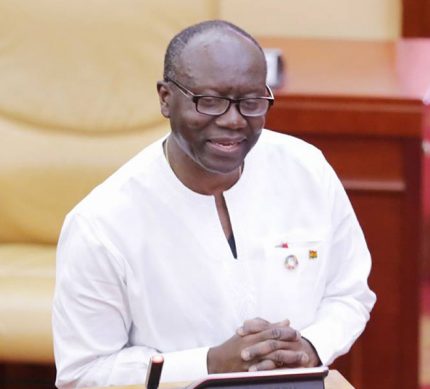Government has secured US$250million from the World Bank, with more expected from other donors, for the establishment of the National Development Bank (NDB).
The NDB is expected to be an independent institution that would be globally rated to enable it leverage foreign private capital for industrial and agriculture development in the country.
Ken Ofori-Atta, Finance Minister, presenting the Nkosuo and Nkabom Budget and Economic Policy for 2020 to Parliamentarians, said the National Development Bank, with an operational target of 2020, is expected to provide cheaper and long term funding for the growth and expansion of key companies operating in the agriculture and industry sectors.
“We have secured US$250million from the World Bank as initial capitalization to kick-start the operations of the NDB and an interim board was set-up. The development bank will also lend through specialized banks to key anchor industries at the Metropolitan, Metropolis and District Assemblies level to support the Governments IDIF initiative.
“The Government will also provide periodic dedicated funds for intervention in key areas of the economy such as large scale agro processing, housing, through various schemes and funds as needed for economic and social development and jobs,” he told lawmakers yesterday.
In addition to the NDB, government is establishing the Enterprise Credit Scheme (ECS) to finance industry, businesses, mortgages and entrepreneurs while driving down lending rates, which currently stand at 25percent per annum.
The ECS, Mr. Ofori-Atta explained will be a GH¢2billion credit and guarantee scheme that will be structured to incentivise banks to lend to private sector at discounted lending rates.
“We will like to emphasize that the ultimate solution to job creation lies with the private sector. The private sector in Ghana continues to borrow at over 25percent, while their competitors elsewhere are borrowing at least that 5percent. One way to support them is to ensure a reasonable level of lending rates.
The scheme, a collaboration between government and the banking community, which will start in the first quarter of 2020 will be targeted at specific industries such as agri-business, manufacturing, hospitality and tourism and the tech-sector amongst others,” he noted.
He opined that government has worked very hard to reverse the deteriorating macroeconomic environment it inherited with results being a reduced inflation and interest rates regime, a stabilised exchange rate, restored sanity in the financial sector, and undertook large scale social intervention programs in education, smallholder agricultural initiatives such as planting and rearing for food and jobs, among others which are prerequisites for private sector led growth and job creation.
Despite the gains, 2020 will begin major interventions to boost private sector credit to support all segments of the business community.
“In 2019, Government engaged many stakeholders with respect to access to credit for the private sector. Experts went across the length and breadth of the country to meet with SMEs and artisans, proprietors and associations to get a better understanding of the challenges they face in accessing credit, while the ministry [finance] also engaged the AGI, Banker’s Association, among others prior to this year’s budget.
Through evidence-based research and field engagements with over 40 business associations, credit needs of micro, small and medium enterprises in the country, Government is ready to take advantage of the macro gains, and enhanced social cohesion through our social intervention initiatives to focus on private sector growth, home ownership and infrastructure development, including toll roads.
The key institutions to anchor this shift will be the National Development Bank (NDB) and the Ghana Infrastructure Investment Fund (GIIF),” he added.
Source: thebftonline.com







